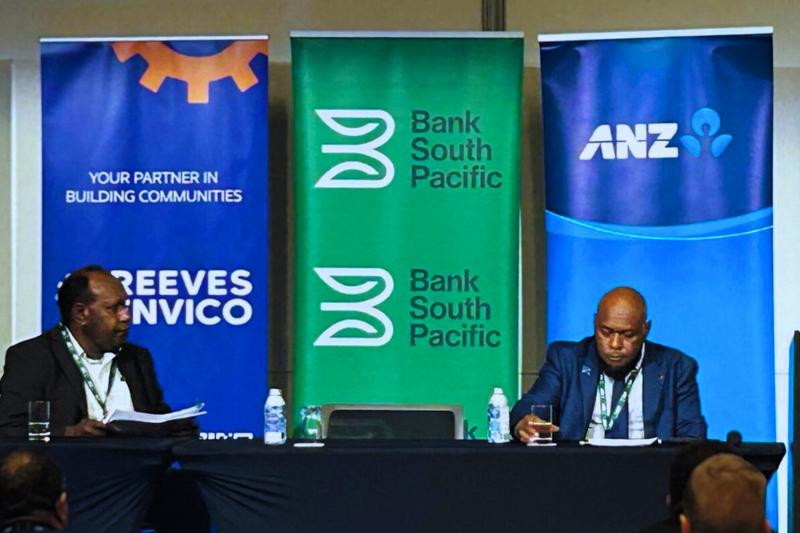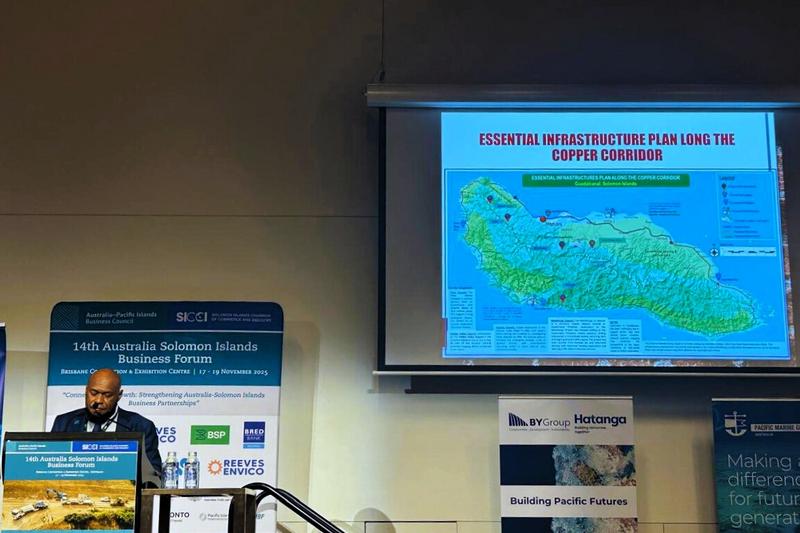The Solomon Islands Government, through the Ministry of Mines, Energy and Rural Electrification (MMERE), highlighted its partnership with the World Bank at the 14th Australia–Solomon Islands Business Forum, underscoring efforts to strengthen mining sector transparency, governance, and investment.
Minister Derrick Rawcliffe Manuari delivered a keynote presentation, outlining the Government’s commitment to building a modern, sustainable, and investor-ready mining industry.
During the session on “Opportunities in the Solomon Islands Resources Sector,” Minister Manuari emphasised the Government’s determination to strengthen institutional, legal, and governance frameworks. He noted that the Solomon Islands is at a turning point in resource development due to growing global demand for critical minerals.
A key initiative supporting these reforms is the Sustainable Mining Development Technical Assistance Project (SMDTAP), led by the World Bank in collaboration with MMERE and the Ministry of Finance and Treasury. SMDTAP is modernising mining governance, enhancing regulatory and administrative systems, and establishing a foundation for responsible and transparent sector growth.
World Bank Senior Mining Specialist Dr. Wilfred Lus highlighted the Bank’s support in helping the Solomon Islands leverage its resource potential in line with global best practices. He stressed the importance of modern geodata, predictable regulatory systems, benefit-sharing mechanisms, and integrated infrastructure planning to attract high-quality investment.
Minister Manuari also outlined the Government’s key reforms:
-
Mineral Resources Bill (2025) – modernising sector legislation;
-
Mining Cadastre Administration System (MCAS) – enhancing licensing transparency;
-
Re-engagement with the Extractive Industries Transparency Initiative (EITI);
-
Strengthened Gender Equality & Social Inclusion (GESI) strategies;
-
Minerals Development Master Plan – identifying critical mineral corridors for copper, nickel, and gold, incorporating environmental, social, and governance (ESG) principles.


Both MMERE and the World Bank highlighted the Solomon Islands’ significant geological potential, including substantial deposits of bauxite, gold, and nickel, positioning the country as a contributor to regional and global critical-minerals supply chains.
Dr. Lus outlined upcoming World Bank support, including assistance for mineral auctions, investment packaging, data-room preparation, and shared infrastructure development in copper- and nickel-rich regions such as Guadalcanal, Isabel, and Choiseul. These initiatives aim to attract responsible investors, strengthen community benefits, and promote inclusive economic development.
The upcoming World Bank–Solomon Islands Government dialogue, scheduled for 1–4 December 2025 in Honiara, will focus on advancing sector reforms, guiding investment, and preparing for future large-scale mining operations.










